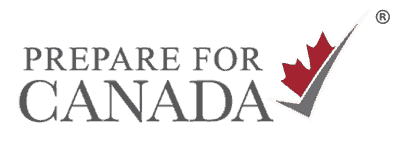
A credit card can be helpful when you arrive in Canada. You’ll need to apply to get a card with a credit limit. The limit won’t be high because your credit profile will still be thin. Until your finances are stable, you will likely start with one card.
How you use this credit card will affect your credit rating from day one, so you must avoid common bad habits that can damage your credit score. The first thing to know about building credit in Canada is that you should use your credit card and then pay it off in full each month. If you follow this golden rule you will set yourself up for long-term financial success in Canada.
Advertisement:
Also, avoid these common mistakes to ensure that you build a strong credit history in Canada!
1. Only Making the Minimum Monthly Payment on Your Credit Card Bill
Advertisement:
Issuers of credit cards make it easy to repay your balance by allowing minimum payments. However, when you only pay the minimum payment each month it increases the amount of time it takes to pay off your balance as well as the interest you pay on your credit card. It also means that you will likely never pay off the full amount of your card. This means that the item that you bought months ago you’re still paying interest on.
2. Missing Payments
If you miss a payment date you will have to pay a late payment fee. And late payment fees can add up quickly. To avoid late payment fees, you can set up an automatic payment to your debit card. Remember, if you can you should pay off the full balance each month. If you fall behind in your payments your credit score will begin to suffer a great deal. By meeting your monthly payments, you show banks that you can manage your money well.
3. Not Reading Your Monthly Statement
If you don’t open your credit card billing statement, you risk missing your payment due date or paying less than you should be. Ignoring your statement could cause you to miss important announcements about changes to your credit card terms. You should also review the payments that you’re making, this can alert you to any fraud that is taking place.
Related Posts:
Cost-Saving Ideas Practical Tips for Newcomers
How to open a bank account in Canada before you arrive
Advertisement:
Building Credit History in Canada
How to Apply for a Credit Card in Canada
No-Spend Challenge | A Journey to Financial Freedom
Banking and Finance in Canada: Your Financial First Steps

4. Not Reporting a Lost or Stolen Credit Card
If you lose your card, the first thing that you should do is report it to your financial institution. The longer it takes you to report a lost or stolen credit card, the longer the thief has to charge up your account.
If you report your missing card before any fraudulent charges are made, you’ll have no liability for the charges. Report a missing card as soon as possible to limit your liability for fraudulent charges.
5. Maxing Out Your Credit Card
As a newcomer, in your first few weeks, there will probably be some surprising things that you need to pay for that you did not budget for. A credit card can be a short-term solution but you should never max out a card and keep the balance at full on a month-to-month basis.
Charging beyond 30% of your credit limit is dangerous to your credit score. Getting close to your credit limit puts you at risk for over-the-limit fees and penalty interest rates you’ll have to pay when you exceed your credit limit. Maintain a low balance on your card for a healthy credit score and manageable payment amount.
Building good spending habits when you arrive in Canada will help you to reduce financial stress and build strong credit.
For more information and resources, visit our Banking in Canada resource page.
David Singh moved to Canada from India 6 years ago. He loves sharing his experiences with other newcomers to Canada in the hope that they are able to settle here with ease.

